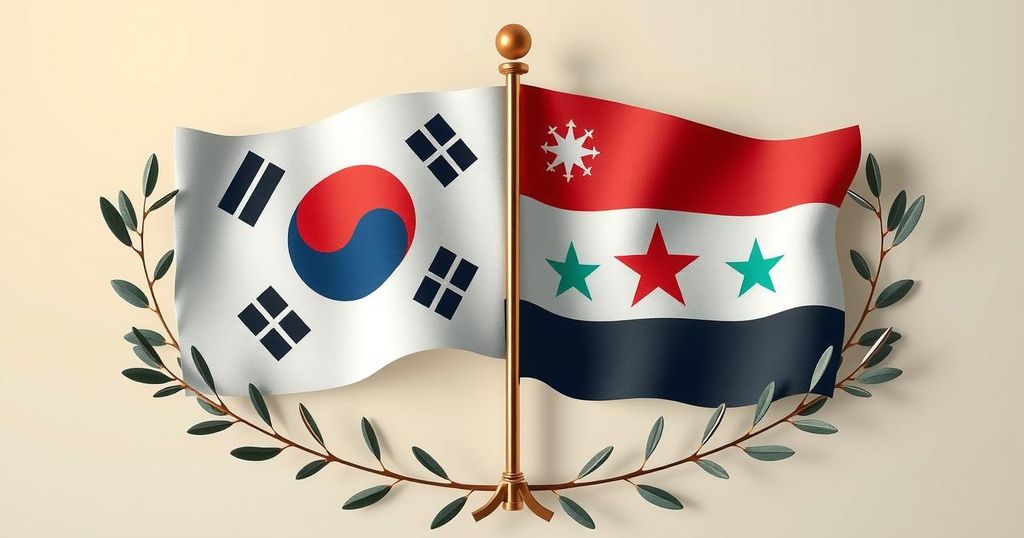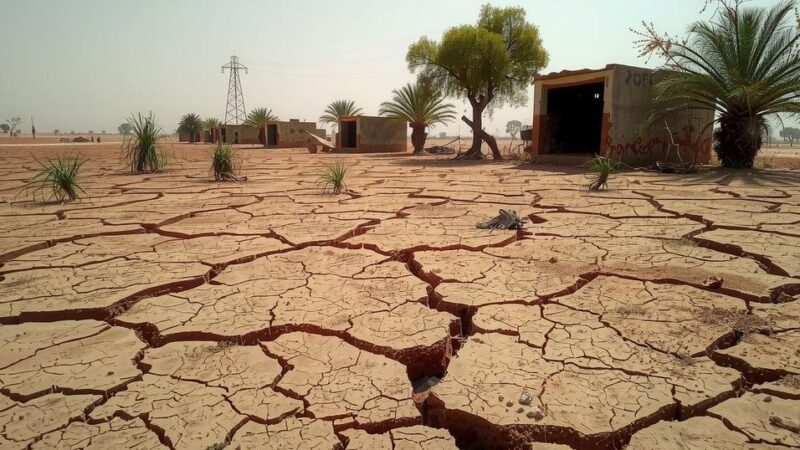South Korea has established diplomatic relations with Syria, enhancing its international presence and pressuring North Korea. Foreign Minister Cho Tae-yul’s visit to finalize these ties signals a commitment to support Syria’s recovery, offering humanitarian aid and exploring development cooperation. The agreement follows significant political changes in Syria, pointing toward a diversification of its international alliances.
On Thursday, South Korea’s Foreign Minister Cho Tae-yul formalized diplomatic ties with Syria, concluding the normalization of relations with a United Nations member state other than North Korea. This significant step included a personal visit to Syria by Cho, which demonstrates South Korea’s expanding diplomatic footprint and increasing pressure on North Korea, a longstanding ally of Syria.
The South Korean Foreign Ministry stated, “The establishment of diplomatic relations opens a new chapter of cooperation with Syria, whose ties with us had been severed due to its close alignment with North Korea.” During the meeting in Damascus, Cho and Syrian Foreign Minister Asaad al-Shaibani signed a joint statement to cement these new diplomatic ties and discussed potential avenues for enhancing bilateral cooperation.
Cho remarked, “Syria’s stability and prosperity are essential not only for peace in the Middle East but also for global peace.” He expressed optimism that the new diplomatic relations would foster development in Syria and enhance regional stability. Additionally, Cho indicated South Korea’s readiness to share development experiences and facilitate participation of South Korean enterprises in Syria’s reconstruction efforts.
As part of the agreement, Cho committed to delivering humanitarian aid, which includes medical supplies and food, to assist Syria amid its ongoing humanitarian crisis. In turn, al-Shaibani acknowledged the aid, indicating a desire for South Korea’s assistance in alleviating international sanctions on Syria.
Following the establishment of diplomatic relations, Cho met Syrian President Ahmed Al-Sharaa, congratulating him on the formation of a new government succeeding the Assad regime. Cho emphasized that if Syria succeeds in its political processes and complies with international standards, particularly concerning chemical weapons, it would create conditions favorable for Syria’s rebuilding and economic growth.
Al-Sharaa praised the new diplomatic ties, saying, “South Korea’s support is essential for Syria’s new start. Let us develop a friendly and cooperative relationship between South Korea and Syria that contributes to international peace.” This normalization occurred shortly after a senior South Korean official confirmed Syria’s eagerness to establish diplomatic relations earlier this year, a move endorsed by the South Korean Cabinet in March.
Syria’s decision to advance relations with South Korea follows the fall of former President Bashar al-Assad’s regime, with interim President Al-Sharaa seeking to engage with the global community while moving away from old alliances, including those with North Korea and Russia. Historically, Syria has maintained strong relations with North Korea since the 1960s, especially regarding military technology. South Korea’s proactive diplomatic stance further isolates North Korea, which has seen a gradual decline in its alliances, a trend evidenced by South Korea’s recent engagement with Cuba as well.
South Korea’s establishment of diplomatic relations with Syria represents a critical development in its foreign policy, enhancing diplomatic engagement while placing additional pressure on North Korea. With Cho Tae-yul’s direct involvement in finalizing these ties, South Korea has signified a commitment to supporting Syria’s recovery and stability. This move not only marks a comprehensive normalization effort but also demonstrates South Korea’s strategic intentions in the Middle Eastern geopolitics.
Original Source: koreajoongangdaily.joins.com






